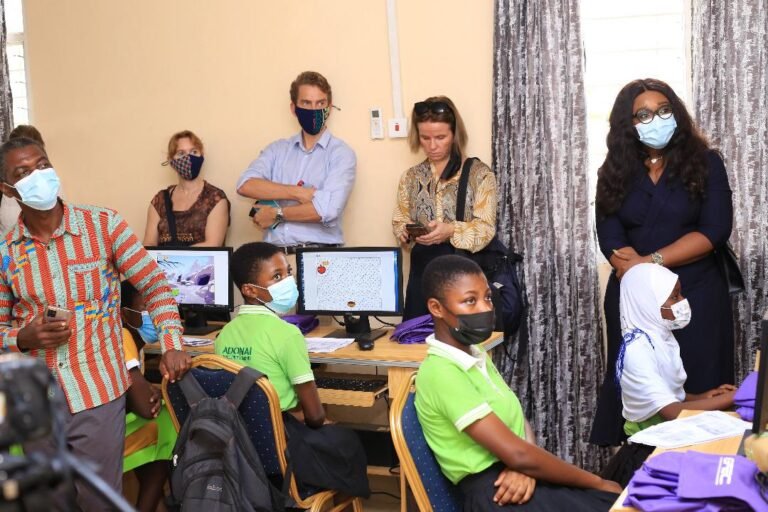The Ghana Investment Fund for Electronic Communications (GIFEC) has underscored the need for intensified training for persons in the areas of electronic coding as the world advances in technology.
Mr. Prince Ofosu Sefah, the Chief Executive Officer of GIFEC, noted that an inclusive digital society would afford Ghana the opportunity to solve emerging problems in communication, sanitation and transportation among others.
Speaking at a close-out ceremony for 30 coding club teachers selected from all regions in the country at Nkwantakese in the Afigya Kwabre North in the Ashanti Region, he said digital skills “is the way to go” adding that, GIFEC would do more to close such gaps in Ghana.
Coding is all about the instruction one gives to a computer to perform a particular activity or task.
Coding for Kids are interactive, interesting and creative programme that allows children to be exposed to coding at very early ages.
This increases children’s level of interest in computing in general increases
The CEO explained that in view of this, a project “Digital Transformation Centers”- a collaborative initiative between GIFEC, the International Telecommunications Union (ITU) and Cisco has been implemented to build an inclusive digital society and bridge the gap in the digital space.
The three-year project (2021-2023) had funding from the Norwegian Agency for Development Cooperation (NORAD) and counterpart funding from GIFEC to focus on requisite supervision of the programme.
According to him, partners were aiming to build a digitally literate citizenry to boost their ICT capabilities to enable them to participate meaningfully in the knowledge society of today.
The programme involves training of beneficiaries made up of persons in the formal and informal sectors; students, teachers, training for women and girls, youth, and the marginalised in communities such as head porters, school dropouts and school leavers in Cisco certified courses.
Mr. Sefah said plans were designed to develop digital skills, mainly at the basic and intermediate levels, particularly in underserved communities, and features courses including introduction to cybersecurity, cybersecurity essentials, introduction to IoT, Python, C++ and Entrepreneurship.
The coding clubs, according to him, which were being established in schools, had so far trained about 600 children.
Mr Sefah indicated that GIFEC had seen the need to expand its coverage in coding for school kids programmes, especially in robotics, by training new teachers to extend the club to all regions in Ghana.
By the end of the project this year, it is expected that a total of 1,200 school children will have received training in coding.t 600 children trained in 16 existing Coding Clubs.
Mr Alex Boahoma, National Project Officer, ITU, revealed that the training the teachers received comprised some aspects of STEM which would help them to translate the practicality using robotics.
He said beneficiaries were exposed to the STEM aid kits which helped trainers develop modules of sensitive lighting systems, smart walking sticks, and traffic lights among others during training.
He said the project had acquired 200 pieces of STEM aid kits to be supplied to the 30 schools.
Mr Boahoma expressed the hope that even at the end of the project, beneficiary teachers would continue to work with the kits, which enhances children’s ability to critical thinking and teamwork.




